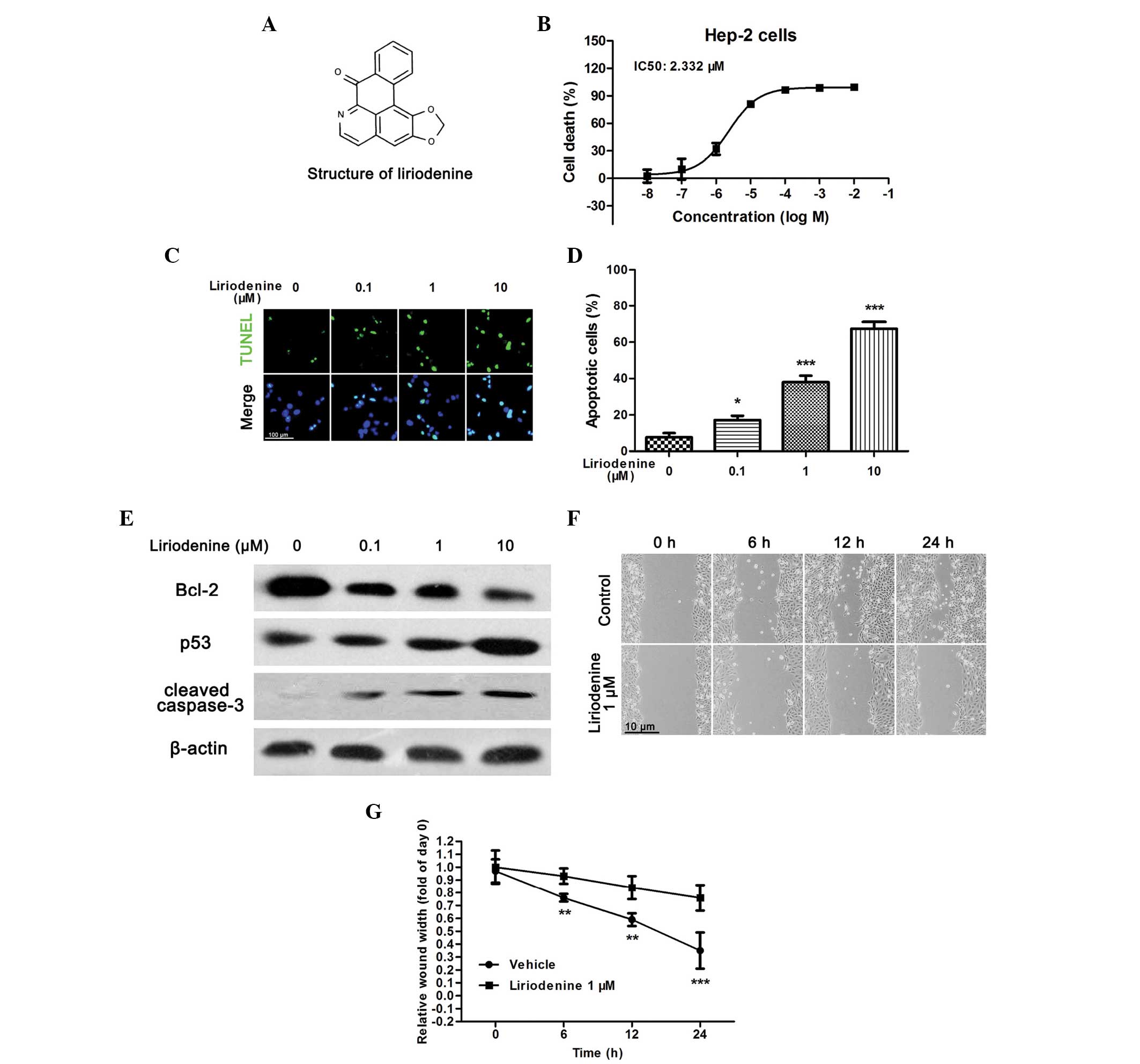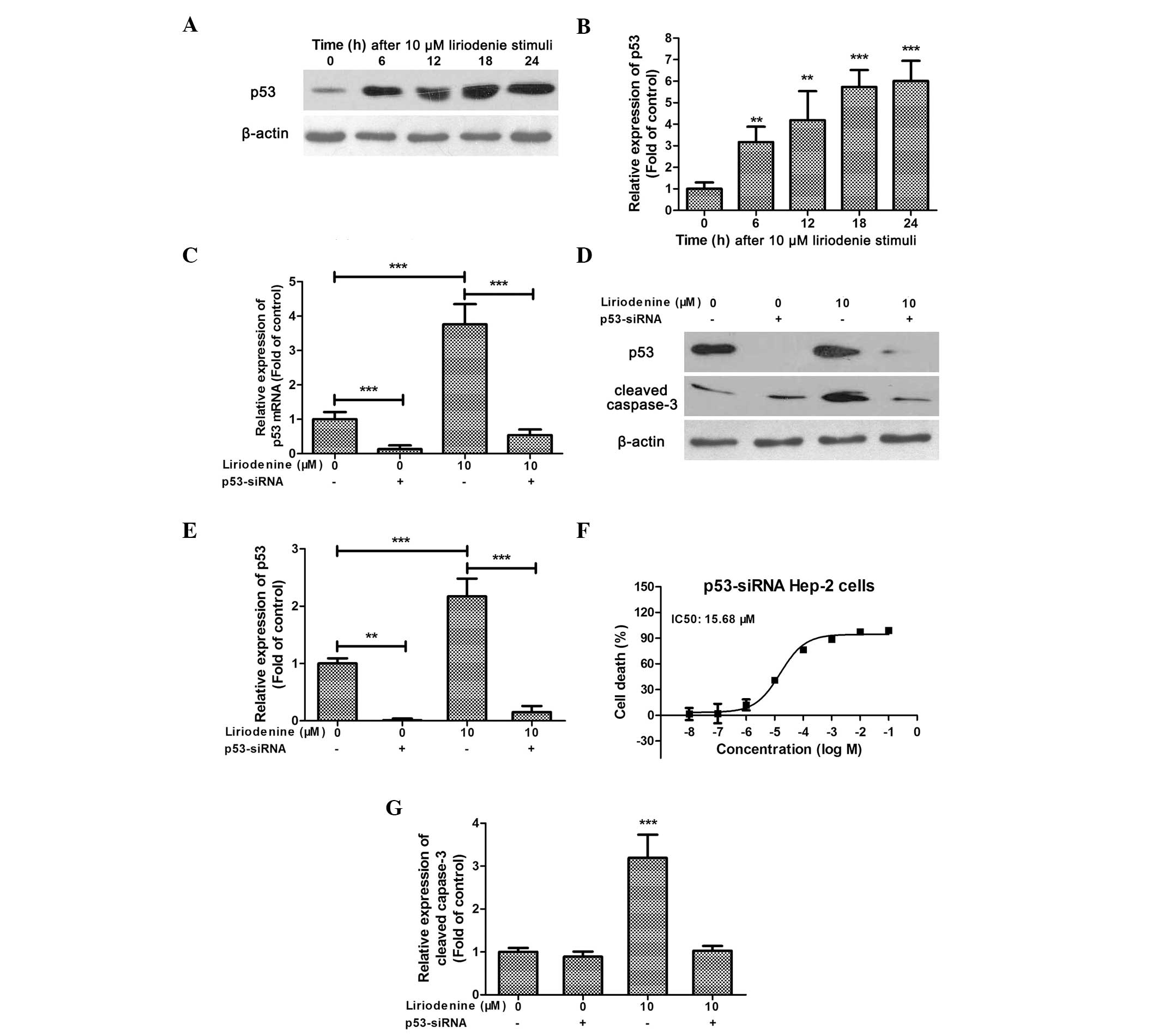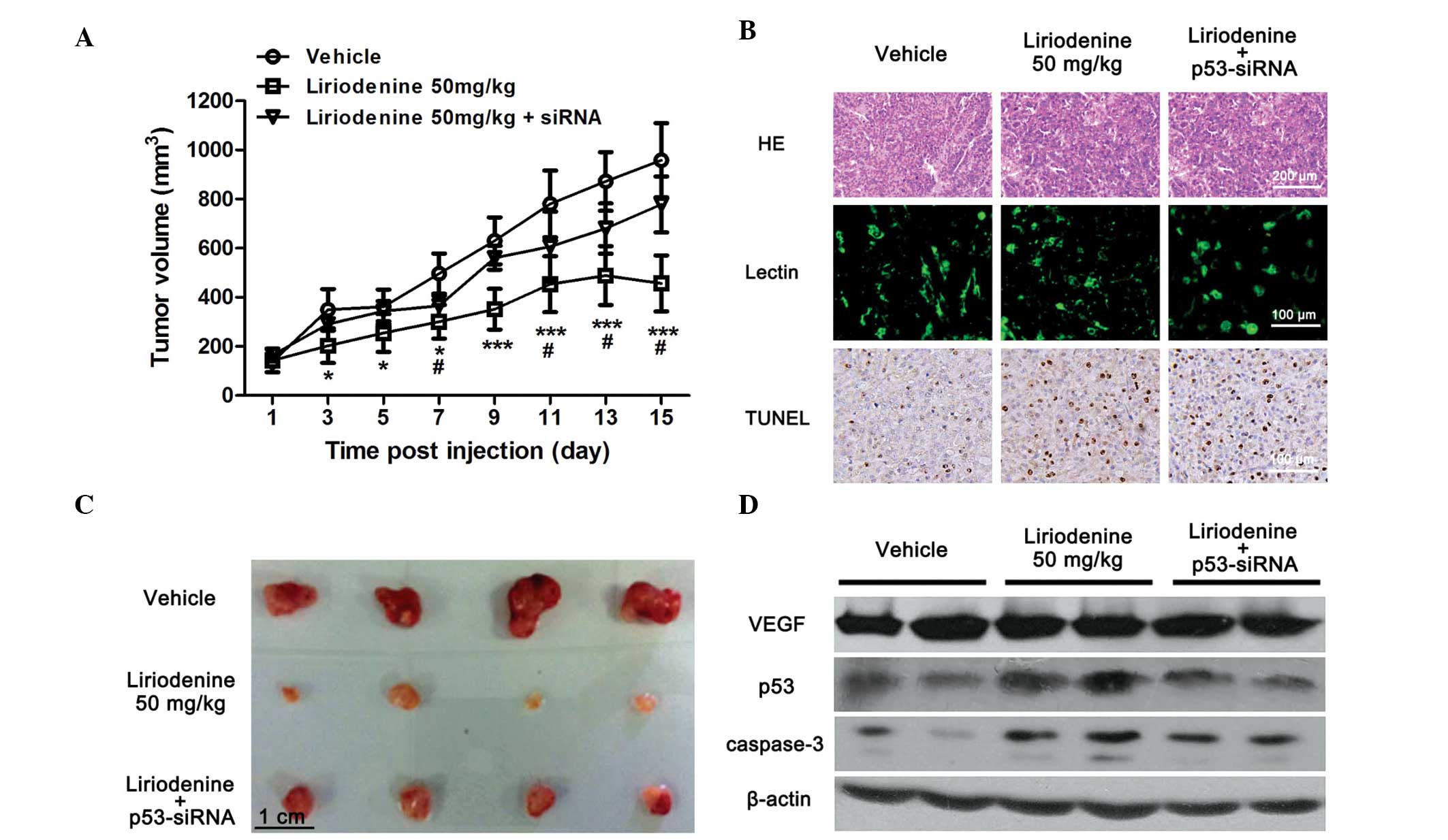|
1
|
Nix P, Lind M, Greenman J, Stafford N and
Cawkwell L: Expression of Cox-2 protein in radioresistant laryngeal
cancer. Ann Oncol. 15:797–801. 2004. View Article : Google Scholar : PubMed/NCBI
|
|
2
|
Cann CI, Fried MP and Rothman KJ:
Epidemiology of squamous cell cancer of the head and neck.
Otolaryngol Clin North Am. 18:367–388. 1985.PubMed/NCBI
|
|
3
|
Parkin DM, Bray F, Ferlay J and Pisani P:
Estimating the world cancer burden: Globocan 2000. Int J Cancer.
94:153–156. 2001. View
Article : Google Scholar : PubMed/NCBI
|
|
4
|
American Society of Clinical Oncology.
Pfister DG, Laurie SA, Weinstein GS, et al: American Society of
Clinical Oncology clinical practice guideline for the use of
larynx-preservation strategies in the treatment of laryngeal
cancer. J Clin Oncol. 24:3693–3704. 2006. View Article : Google Scholar : PubMed/NCBI
|
|
5
|
Chatrath P, Scott IS, Morris LS, et al:
Immunohistochemical estimation of cell cycle phase in laryngeal
neoplasia. Br J Cancer. 95:314–321. 2006. View Article : Google Scholar : PubMed/NCBI
|
|
6
|
Taguchi T and Tsukuda M: Attempts to
improve organ preservation in patients with squamous cell carcinoma
of the head and neck. Gan To Kagaku Ryoho. 32:2030–2034. 2005.(In
Japanese). PubMed/NCBI
|
|
7
|
Warthen D, Gooden EL and Jacobson M: Tumor
inhibitors: liriodenine, a cytotoxic alkaloid from Annona glabra. J
Pharm Sci. 58:637–638. 1969. View Article : Google Scholar : PubMed/NCBI
|
|
8
|
Bentley KW: Beta-phenylethylamines and the
isoquinoline alkaloids. Nat Prod Rep. 18:148–170. 2001. View Article : Google Scholar : PubMed/NCBI
|
|
9
|
Hsieh TJ, Liu TZ, Chern CL, et al:
Liriodenine inhibits the proliferation of human hepatoma cell lines
by blocking cell cycle progression and nitric oxide-mediated
activation of p53 expression. Food Chem Toxicol. 43:1117–1126.
2005. View Article : Google Scholar : PubMed/NCBI
|
|
10
|
Clark AM, Watson ES, Ashfaq MK and Hufford
CD: In vivo efficacy of antifungal oxoaporphine alkaloids in
experimental disseminated candidiasis. Pharm Res. 4:495–498. 1987.
View Article : Google Scholar : PubMed/NCBI
|
|
11
|
Hufford CD, Funderburk MJ, Morgan JM and
Robertson LW: Two antimicrobial alkaloids from heartwood of
Liriodendron tulipifera L. J Pharm Sci. 64:789–792. 1975.
View Article : Google Scholar : PubMed/NCBI
|
|
12
|
Chang GJ, Wu MH, Wu YC and Su MJ:
Electrophysiological mechanisms for antiarrhythmic efficacy and
positive inotropy of liriodenine, a natural aporphine alkaloid from
Fissistigma glaucescens. Br J Pharmacol. 118:1571–1583. 1996.
View Article : Google Scholar : PubMed/NCBI
|
|
13
|
Khamis S, Bibby MC, Brown JE, et al:
Phytochemistry and preliminary biological evaluation of
Cyathostemma argenteum, a malaysian plant used traditionally for
the treatment of breast cancer. Phytother Res. 18:507–510. 2004.
View Article : Google Scholar : PubMed/NCBI
|
|
14
|
Chiu CC, Chou HL, Wu PF, et al:
Bio-functional constituents from the stems of Liriodendron
tulipifera. Molecules. 17:4357–4372. 2012. View Article : Google Scholar : PubMed/NCBI
|
|
15
|
Chang HC, Chang FR, Wu YC and Lai YH:
Anti-cancer effect of liriodenine on human lung cancer cells.
Kaohsiung J Med Sci. 20:365–371. 2004. View Article : Google Scholar : PubMed/NCBI
|
|
16
|
Guo Z, Vangapandu S, Sindelar RW, Walker
LA and Sindelar RD: Biologically active quassinoids and their
chemistry: potential leads for drug design. Curr Med Chem.
12:173–190. 2005. View Article : Google Scholar : PubMed/NCBI
|
|
17
|
Chen ZF, Liu YC, Peng Y, et al: Synthesis,
characterization, and in vitro antitumor properties of gold(III)
compounds with the traditional Chinese medicine (TCM) active
ingredient liriodenine. J Biol Inorg Chem. 17:247–261. 2012.
View Article : Google Scholar
|
|
18
|
Wu YC, Duh CY, Wang SK, Chen KS and Yang
TH: Two new natural azafluorene alkaloids and a cytotoxic aporphine
alkaloid from Polyalthia longifolia. J Nat Prod. 53:1327–1331.
1990. View Article : Google Scholar : PubMed/NCBI
|
|
19
|
Wang Y, Gao L, Li Y, Chen H and Sun Z:
Nifedipine protects INS-1 β-cell from high glucose-induced ER
stress and apoptosis. Int J Mol Sci. 12:7569–7580. 2011. View Article : Google Scholar
|
|
20
|
Wu J, Sun P, Zhang X, et al: Inhibition of
GPR40 protects MIN6 β cells from palmitate-induced ER stress and
apoptosis. J Cell Biochem. 113:1152–1158. 2012. View Article : Google Scholar : PubMed/NCBI
|
|
21
|
Sun P, Wang T, Zhou Y, et al: DC260126: a
small-molecule antagonist of GPR40 that protects against pancreatic
β-cells dysfunction in db/db mice. PLoS One. 8:e667442013.
View Article : Google Scholar
|
|
22
|
Levine AJ and Oren M: The first 30 years
of p53: growing ever more complex. Nat Rev Cancer. 9:749–758. 2009.
View Article : Google Scholar : PubMed/NCBI
|
|
23
|
Soengas MS, Alarcón RM, Yoshida H, et al:
Apaf-1 and caspase-9 in p53-dependent apoptosis and tumor
inhibition. Science. 284:156–159. 1999. View Article : Google Scholar : PubMed/NCBI
|
|
24
|
Schultz RM, Merriman RL, Toth JE, et al:
Evaluation of new anticancer agents against the MIA PaCa-2 and
PANC-1 human pancreatic carcinoma xenografts. Oncol Res. 5:223–228.
1993.PubMed/NCBI
|
|
25
|
Belotti D, Paganoni P, Manenti L, et al:
Matrix metalloproteinases (MMP9 and MMP2) induce the release of
vascular endothelial growth factor (VEGF) by ovarian carcinoma
cells: implications for ascites formation. Cancer Res.
63:5224–5229. 2003.PubMed/NCBI
|
|
26
|
Ebos JM, Lee CR, Cruz-Munoz W, et al:
Accelerated metastasis after short-term treatment with a potent
inhibitor of tumor angiogenesis. Cancer Cell. 15:232–239. 2009.
View Article : Google Scholar : PubMed/NCBI
|
|
27
|
Akkiprik M, Sonmez O, Gulluoglu BM, et al:
Analysis of p53 gene polymorphisms and protein over-expression in
patients with breast cancer. Pathol Oncol Res. 15:359–368. 2009.
View Article : Google Scholar
|
|
28
|
Jiang LY, Lian M, Wang H, Fang JG and Wang
Q: Inhibitory effects of 5-aza-2′-deoxycytidine and trichostatin A
in combination with p53-expressing adenovirus on human
laryngocarcinoma cells. Chin J Cancer Res. 24:232–237. 2012.
View Article : Google Scholar
|
|
29
|
Zhao F, Huang W, Ousman T, et al:
Triptolide induces growth inhibition and apoptosis of human
laryngocarcinoma cells by enhancing p53 activities and suppressing
E6-mediated p53 degradation. PLoS One. 8:e807842013. View Article : Google Scholar : PubMed/NCBI
|
|
30
|
Meek DW: Tumour suppression by p53: a role
for the DNA damage response? Nat Rev Cancer. 9:714–723.
2009.PubMed/NCBI
|
|
31
|
Junttila MR and Evan GI: p53 - a Jack of
all trades but master of none. Nat Rev Cancer. 9:821–829. 2009.
View Article : Google Scholar : PubMed/NCBI
|
|
32
|
Cillessen SA, Meijer CJ, Notoya M,
Ossenkoppele GJ and Oudejans JJ: Molecular targeted therapies for
diffuse large B-cell lymphoma based on apoptosis profiles. J
Pathol. 220:509–520. 2010. View Article : Google Scholar : PubMed/NCBI
|
|
33
|
Roth JA, Swisher SG and Meyn RE: p53 tumor
suppressor gene therapy for cancer. Oncology (Williston Park).
13(Suppl 5): 148–154. 1999.
|
|
34
|
Bascones-Martínez A, Rodríguez-Gutierrez
C, Rodríguez-Gómez E, et al: Evaluation of p53, caspase-3, Bcl-2,
and Ki-67 markers in oral squamous cell carcinoma and premalignant
epithelium in a sample from Alava Province (Spain). Med Oral Patol
Oral Cir Bucal. 18:e846–e850. 2013. View Article : Google Scholar : PubMed/NCBI
|

















